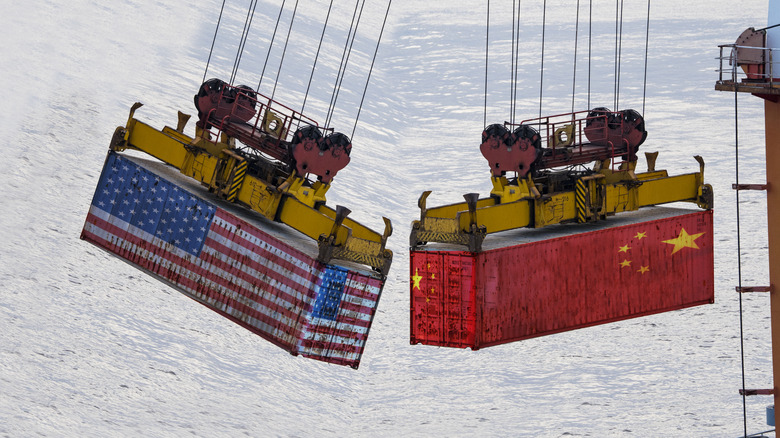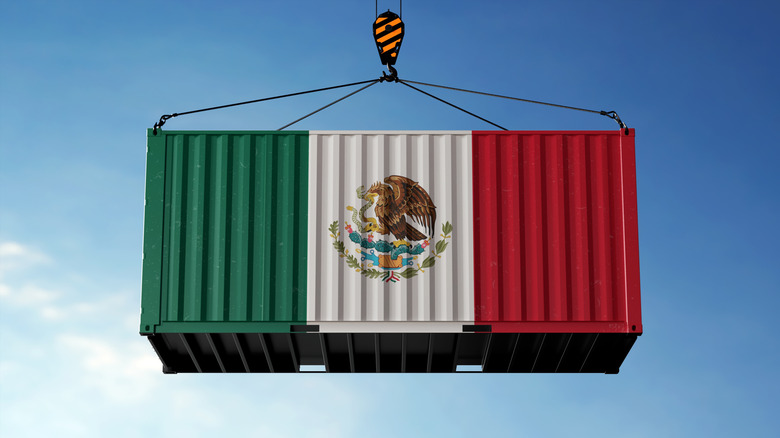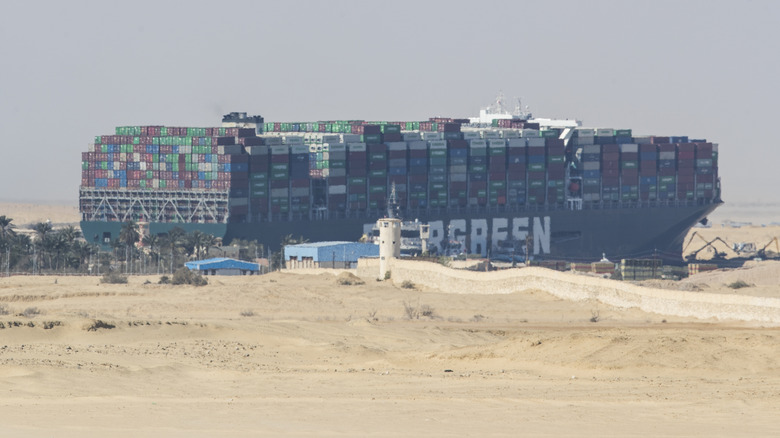Retaliatory Tariffs Could Pose A Big Problem To The US Economy - Here's Why
You may now know more about tariffs than you ever cared to. These import taxes are meant to encourage a return to domestic manufacturing, to boost the purchasing of domestic goods over foreign ones, and to generate revenue for the federal government. However, tariffs can actually be damaging to domestic economic success, especially when retaliatory tariffs are in play.
President-elect Donald Trump clearly favors tariffs as a solve-all for United States foreign policy and a show of domestic economic power, despite the havoc extreme tariffs might wreak at home, abroad, and across the already-strained global supply chain. Trump has proposed broad customs duties in the realm of 10% to 60%, with special emphasis on imports from Mexico, Canada, and China. While Trump's rates and targets shift frequently, the percentages are punishing. Alarm bells are ringing for economic experts and business owners.
Domestic business leaders have already spoken out about passing the cost of Trump's tariffs on to their customers, and some global trade leaders have also started to make noise about levying their own tariffs against the U.S. The President of Mexico, Claudia Sheinbaum, warned Trump in a letter and press conference that tariffs would cause inflation, job loss, and global tariff retaliation.
Top trade partners are powerful targets
To be clear, before Donald Trump's second-term inauguration, his proposed tariffs remain just that: proposals. Still, his rhetoric around tariffs has only heightened, and as such, these proposals are being taken very seriously. Spokespeople from top U.S. trade partners like China, Canada, and Mexico have urged Trump against tariff escalation and the retaliation that will surely ensue, causing mutual economic suffering.
The U.S. has vast purchasing power, being the largest importer of goods in the world. However, the U.S. is also the second-largest exporter of goods, behind China. If the U.S. puts the screws to its top trade partners, logic follows that those partners may do the same to the U.S. "The United States exports hundreds of billions of dollars worth of goods to these countries," Keith Rockwell, former World Trade Organization director, told The Guardian in late November 2024, adding: "Anyone who expects that they will stand pat and not retaliate has not been paying attention."
History tends to repeat itself. Tariffs Trump introduced in his first term (which remained in place throughout the Biden-Harris administration) were responded to with retaliatory tariffs from major trade partners in 2018. A 2022 research study by the USDA Economic Research Service, The Economic Impacts of Retaliatory Tariffs on U.S. Agriculture, found Midwestern U.S. states to be the most impacted by retaliatory agricultural tariffs. The report also found losses of $13.2 billion dollars due to retaliatory tariffs from mid-2018 through 2019.
Other potential results
Donald Trump may plan to use the threat of high tariffs as a tool to gain favorable trade terms when negotiating with global partners. Or, these sanction-like tariffs may help force change in migration and fentanyl production, as Trump has claimed on the campaign trail. Trump may expect manufacturers will reshore production to the United States in order to avoid tariffs, rather than to other more cost-effective countries like Nepal or Vietnam. These shifts could impact all manner of jobs domestically, as well as prices paid for goods and services.
Global trade relies on a delicate network of geopolitical relations and physical infrastructure. As such, that delicate network can be halted or upended by events like disaster, weather, and supply shortages that alter the course of international trade, as well as drive up the cost of shipping, logistics, and goods here at home. Remember the container ship that got stuck in the Suez Canal in 2021? The plight of the Ever Given ship was joke fodder for weeks, but isn't such a laughing matter considering it impacted $60 billion worth of international trade. Now consider the shifts in manufacturing centers, relationships, and trade routes tariffs and retaliatory tariffs may have on the current system.
Considering also U.S. reliance on Canada for crude oil, Mexico for inexpensive manufacturing and labor, and China for so much, the prospect of an escalating tariff-inspired trade war is grim at worst, and loaded with confusion, tension, and increasing U.S. domestic prices at best.


